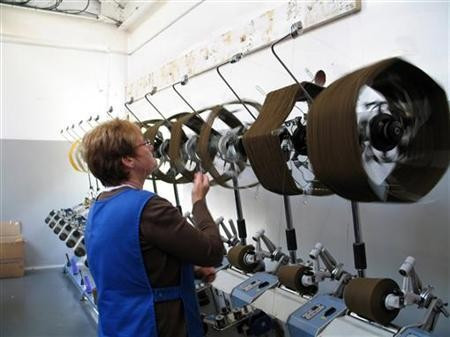Wages Dragged down by Welfare Cuts and Non-Unionised Workers

Wages have plunged since the financial crisis because more people are being forced to return to work after enduring welfare cuts and there are fewer unionised workers, says a thinktank study.
Research published by the Institute for Fiscal Studies (IFS) also found that bigger firms have been more likely to cut labour costs by laying off staff, whereas smaller firms - who make up the bulk of the economy - are more inclined to slash wages instead.
Productivity has fallen faster in smaller firms who have been hesitant to invest amid the economic uncertainty. A third of workers saw their nominal wages cut or frozen between 2010 and 2011, even if they were staying in the same job as businesses tried to stay afloat.
The IFS said it was giving insight into the "productivity puzzle" of how employment has generally held up as output slumped.
"The falls in nominal wages that workers have experienced during this recession are unprecedented, and seem to provide at least a partial explanation for why unemployment has risen less - and productivity has fallen more - than might otherwise have been expected," said Claire Crawford, programme director at the IFS and managing editor of its Fiscal Studies journal where the latest research is published.
"To the extent that it is better for individuals to stay in work, albeit with lower wages, than to become unemployed, the long-term consequences of this recession in terms of labour market performance may be less severe than following the high unemployment recessions of the 1980s and 1990s."
The IFS said the government's billions of pounds of welfare spending cuts, as it seeks to erase the structural deficit in public finances, have kept single parents and older workers in the labour market as they seek to bolster their incomes.
This means there is greater labour supply and more competition for jobs, in turn driving down wages.
It was also noted by the IFS that fewer workers are unionised or covered by collective wage agreements than before, giving employees less leverage when trying to negotiate for a better pay deal.
Related articles:
Recovery on Horizon as Economy Boosted 0.6% by Service Sector
UK Wages Slashed by £52bn since Financial Crisis
UK Poor Pinched Hardest as George Osborne's Welfare Cuts Bite
© Copyright IBTimes 2025. All rights reserved.






















